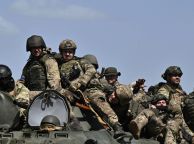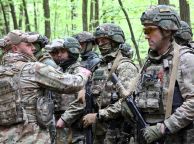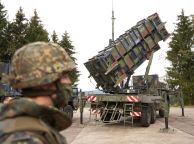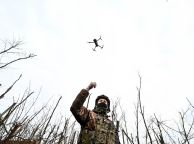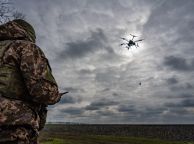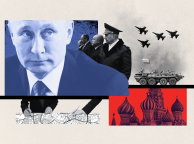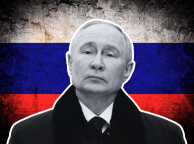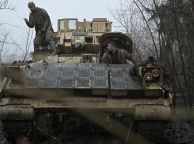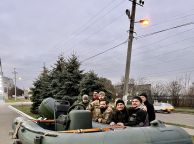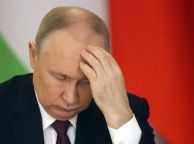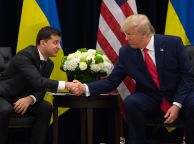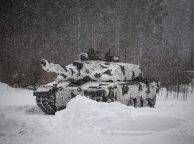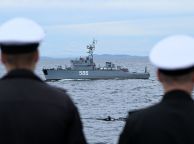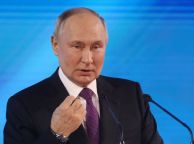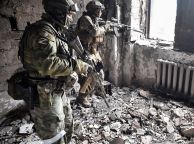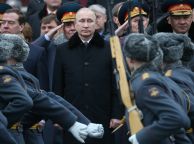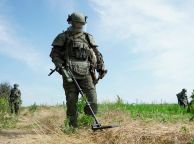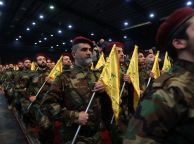By Ellie Cook
Russian commanders are withholding maps showing the locations of Moscow-laid mines in southern Ukraine from their own troops, Ukraine's military said.
Russian forces close to the left bank of the Dnieper River often do not have access to "classified" maps of Russian minefields, with information between Moscow's assault units exchanged "without clear coordinates," the General Staff of Ukraine's armed forces said in a statement on Wednesday.
About 50 casualties were reported among Russia's 810th Naval Infantry Brigade in the past month around the Kherson village of Krynky, it said.
Swathes of southern and eastern Ukraine have been heavily mined by the defending Russian forces, trying to slow down the advances that Kyiv hoped to make during its summer counteroffensive that began in June.
Newsweek reached out to the Russian defense ministry for comment via email.
Barely a month into the counteroffensive, Ukrainian President Volodymyr Zelensky had said that Kyiv hoped to start peeling back Russian forces before Moscow could fortify their defenses in such a way.
"I wanted our counteroffensive to happen much earlier, because everyone understood that if the counteroffensive unfolds later, then a bigger part of our territory will be mined," Zelensky told CNN via a translator at the time. "We give our enemy the time and possibility to place more mines and prepare their defensive lines."
Ukraine is now known as the most mined country on earth. There are "hundreds of kilometres of minefields, millions of explosive devices, in some parts of the frontline up to five mines per square meter," the former Ukrainian defense minister, Oleksii Reznikov, said in August. "We have skilled sappers and modern equipment, but they are extremely insufficient for the front that stretches hundreds of kilometres in the east and south of Ukraine," he told The Guardian.
Earlier this month, Ukraine's military intelligence agency said Russia was "mining critical infrastructure" including electrical substations, across Kherson, which the Kremlin has annexed, but does not fully control.
On top of the minefields, Russia's 810th Naval Infantry Brigade deployed around the Kherson settlement of Krynky "are refusing to conduct assaults on Ukrainian positions" because of poor intelligence and little artillery coordination, the Ukrainian military said.
"The apparent Russian failure to establish a cohesive command structure among forces defending on the east (left) bank of Kherson Oblast continues to degrade Russian morale and combat capabilities," the U.S. think tank, the Institute for the Study of War (ISW), said in its latest analysis.
Soldiers from the 810th arrived in Krynky in early October, and likely took over from Russia's 18th Combined Arms Army in the area, the ISW added.
A lack of communication about Russian minefields suggests the commanders of the 18th Combined Arms Army "did not share relevant tactical details with the 810th Naval Infantry Brigade's command," the ISW argued.
Earlier this month, a clip widely circulating on social media appeared to show a Russian marine from the 810th Naval Infantry Brigade around Krynky criticizing his superiors.
"Nothing is clear, and it's all bad," the soldier said in the video.
Ukraine made sweeping gains in Kherson in its first counteroffensive in late 2022, pushing Russian forces back to the east bank of the Dnieper River, which has roughly marked the front lines in the region throughout 2023.
Kyiv's forces have been whittling away at Russian defenses on the east bank, establishing pockets of control with ground operations in villages such as Krynky since mid-October.
